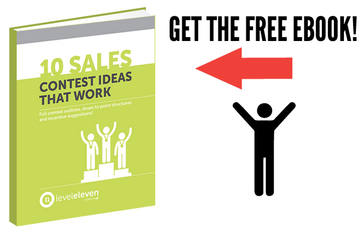 Do you look at sales objections as a bad thing? Do you get uptight around the whole issue? A lot of salespeople treat objections as if they are in a not-so-friendly tennis match: The prospect lobs one over the net, and the rep hits it right back at them — or worse, rushes the net and spikes the ball.
Do you look at sales objections as a bad thing? Do you get uptight around the whole issue? A lot of salespeople treat objections as if they are in a not-so-friendly tennis match: The prospect lobs one over the net, and the rep hits it right back at them — or worse, rushes the net and spikes the ball.
But objections, while not always easy to manage and rarely if ever convenient, are not bad. In fact, they are, as Martha Stewart would say, “a good thing.” Here’s why:
1. Objections often mean the buyer is engaged.
2. You can seize the opportunity to add value.
3. They can tell you if a buyer is really qualified.
Objections usually surface up front when you are trying to engage a prospect, or when you are trying to get agreement at some point in the sales process, up to and including closing the sale. No matter when they come up, it’s really your perspective and reaction that matters. The key is to relax and see those objections as an opportunity, not a roadblock.
Let’s dig a bit deeper on each of the key benefits:
Capitalize on engagement.
At the prospecting stage, some objections are “knee jerk” or automatic on the buyer’s side. But the mere fact that they are responding lets you deal with that objection and segue into a genuine conversation — if you are prepared.
As you get further into the sales process, objections will become more specific and reflect what the buyer is thinking. If they are not clear on some aspect of the situation, you have the opportunity to adapt, adjust and overcome. Even at the end, when price is typically the issue, you have the opportunity to capitalize on the fact that the prospect is fully involved.
Add facts, information and value.
Consider an objection an opportunity for a deeper, more valuable sales conversation. After all, buyers are really asking a question and in need of clarification. As a result, you can get a feeling for where they are going and introduce additional facts or information that add value.
“Help me understand what you mean by…” is good language to use, because it takes the conversation deeper. Objections are your chance to align with the buyer, collaborate and move forward together.
Qualify or disqualify buyers.
Objections are a good way to qualify prospects, so that you don’t waste your time volleying objection balls back and forth over the net with someone who will never pen a check. In fact, if your close ratio with qualified prospects falls below 50% you would likely be better served by more aggressively disqualifying prospects. (Of course, you need to replace those disqualified prospects with a steady stream of new ones, but at least you’ll have the time to do that.)
Start leveraging these key benefits, and you’ll not only respond better to objections, but realize their full potential in moving business forward.
Source: Tibor Shanto on www.sellbetter.ca
 About the author: Michael Boyette is the Executive Editor of Rapid Learning Institute and thought leader for the Top Sales Dog blog. He is a nationally recognized authority on selling and has written hundreds of articles and training programs for sales reps and sales managers. Michael has managed programs for US Healthcare, Bell Communications Research, and DuPont. Connect with Michael via Twitter @TopSalesDog.
About the author: Michael Boyette is the Executive Editor of Rapid Learning Institute and thought leader for the Top Sales Dog blog. He is a nationally recognized authority on selling and has written hundreds of articles and training programs for sales reps and sales managers. Michael has managed programs for US Healthcare, Bell Communications Research, and DuPont. Connect with Michael via Twitter @TopSalesDog.




